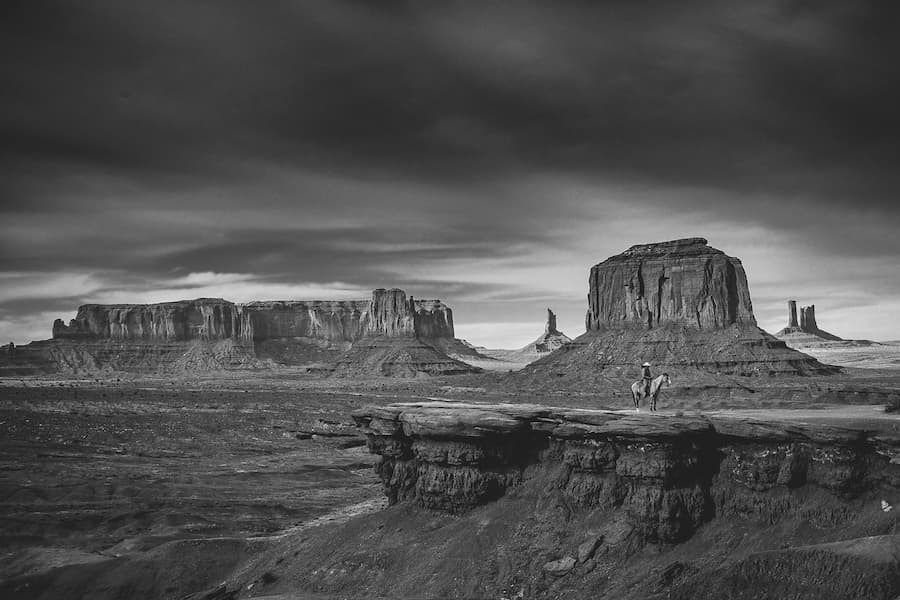Introduction: Welcome to this comprehensive guide on Western movies! In this article, we will delve into the captivating world of Westerns, exploring their distinct characteristics, the notable actors who have made their mark in the genre, and the timeless films that have shaped its legacy. We will also draw comparisons to other film genres, highlighting the unique appeal that Western movies offer. Let’s saddle up and embark on this exciting journey into the wild west!
Section 1: Understanding Western Movies
1.1 Definition and Characteristics: Western movies are a genre of films that typically depict the American Old West during the 19th century. These films transport viewers to a time of cowboys, outlaws, and lawmen, showcasing vast landscapes, dusty towns, and rugged frontiers. Key characteristics of Western movies include:
- Setting: Westerns are typically set in the American frontier, which was characterized by untamed landscapes, open ranges, and small frontier towns.
- Themes: The themes in Western movies often revolve around honor, justice, revenge, survival, and the clash between civilization and the untamed wilderness.
- Characters: Westerns introduce viewers to archetypal characters such as the heroic cowboy, the stoic gunslinger, the outlaw, and the valiant lawman.
- Visual Style: Western movies often feature breathtaking cinematography that captures the beauty and vastness of the western landscape, including sweeping shots of deserts, canyons, and mountain ranges.
- Action and Conflict: Gunfights, horseback chases, and high-stakes showdowns are common elements that provide thrilling action and tension in Western movies.
- Morality and Code: Westerns frequently explore themes of morality and adherence to a personal code of honor, often pitting characters against each other in ethical dilemmas.
Section 2: Notable Actors and Films
2.1 Legendary Western Actors: Several actors have become synonymous with the Western genre, leaving an indelible mark on its history. Here are some of the most celebrated actors in Western movies:
- John Wayne: Known as “The Duke,” John Wayne is perhaps the most iconic Western actor of all time. His roles in films like “Stagecoach” (1939) and “True Grit” (1969) solidified his status as a Western legend.
- Clint Eastwood: With his gritty demeanor and squinting gaze, Clint Eastwood has become an emblematic figure in Western movies. His performances in classics like “The Good, the Bad and the Ugly” (1966) and “Unforgiven” (1992) are revered by fans.
- Gary Cooper: Known for his portrayal of stoic and principled characters, Gary Cooper’s roles in films like “High Noon” (1952) and “The Westerner” (1940) showcased his mastery of the genre.
2.2 Iconic Western Films: Western movies have produced many timeless classics that have left an indelible impact on the cinematic landscape. Here are some must-watch Western films that have enthralled audiences over the years:
- “The Searchers” (1956): Directed by John Ford and starring John Wayne, this film is widely regarded as one of the greatest Westerns ever made, showcasing complex characters and a gripping storyline.
- “Once Upon a Time in the West” (1968): Directed by Sergio Leone and featuring an ensemble cast including Henry Fonda and Charles Bronson, this epic Western blends stunning visuals with a captivating narrative.
- “High Noon” (1952): Directed by Fred Zinnemann and starring Gary Cooper, this film tells the story of a marshal facing a deadly confrontation and is praised for its tense atmosphere and moral dilemmas.
- “The Good, the Bad and the Ugly” (1966): Directed by Sergio Leone and starring Clint Eastwood, this spaghetti Western has become a cult classic, known for its iconic characters and Ennio Morricone’s unforgettable score.
Section 3: Westerns vs. Other Film Genres
3.1 Unique Appeal of Western Movies: While every film genre has its own charm, Western movies offer a distinct appeal that sets them apart:
- Timeless Themes: Westerns explore universal themes of honor, justice, and the human condition, resonating with viewers across generations.
- Iconic Characters: The archetypal characters in Westerns, such as the rugged cowboy or the relentless outlaw, have become cultural icons, capturing the imagination of audiences worldwide.
- Stunning Cinematography: Western movies often feature breathtaking landscapes that transport viewers to a bygone era, immersing them in the vastness and beauty of the American frontier.
- Action and Tension: The thrilling gunfights, daring horseback pursuits, and high-stakes showdowns in Westerns keep audiences on the edge of their seats, providing adrenaline-pumping entertainment.
- Exploration of Morality: Westerns frequently delve into moral dilemmas and the complexities of human nature, adding depth and thought-provoking elements to their narratives.
Conclusion: Western movies have become an integral part of cinematic history, captivating audiences with their distinct settings, characters, and storytelling. From the legendary performances of actors like John Wayne and Clint Eastwood to the timeless classics like “The Searchers” and “Once Upon a Time in the West,” Westerns continue to leave an enduring legacy. Their unique appeal, blending universal themes, stunning visuals, and gripping narratives, sets them apart from other film genres, making them an essential component of the cinematic landscape.
